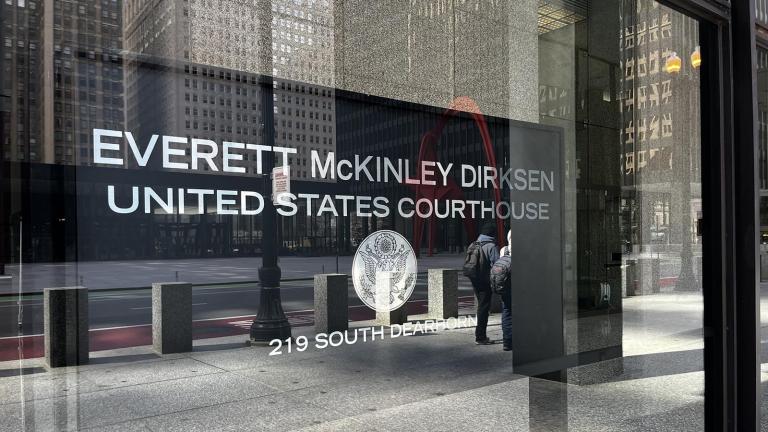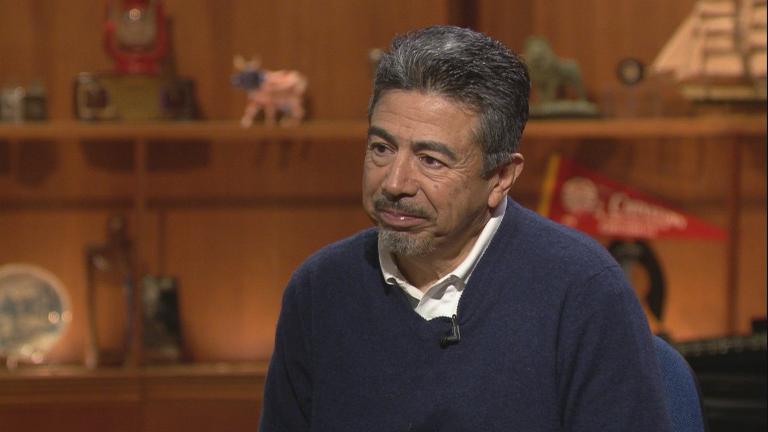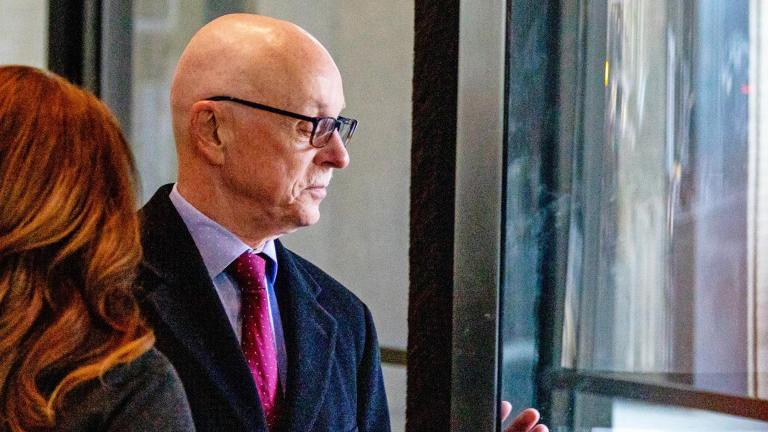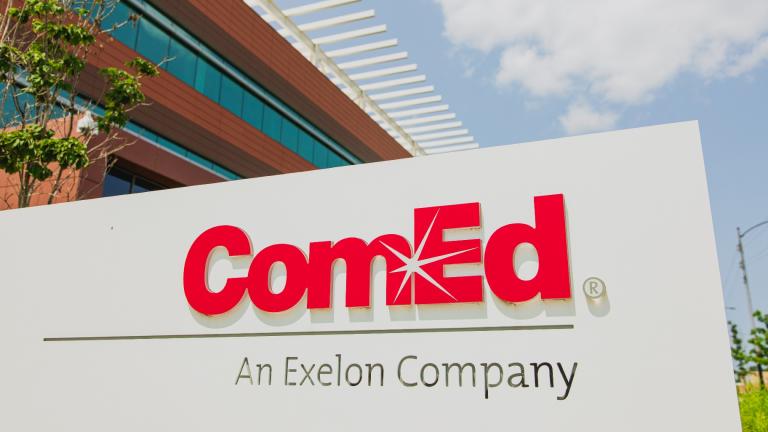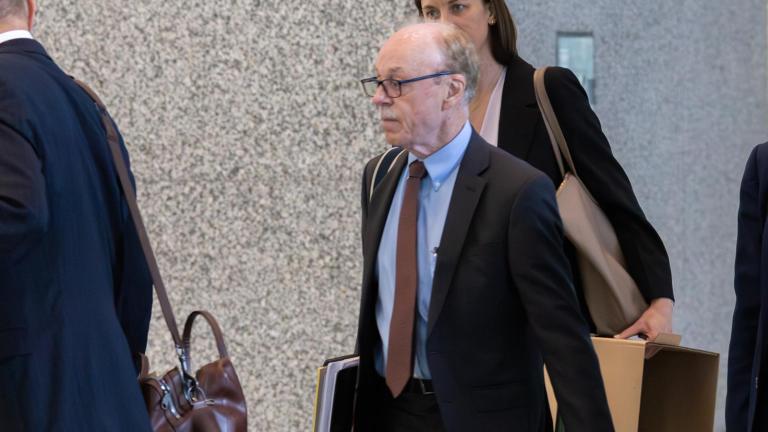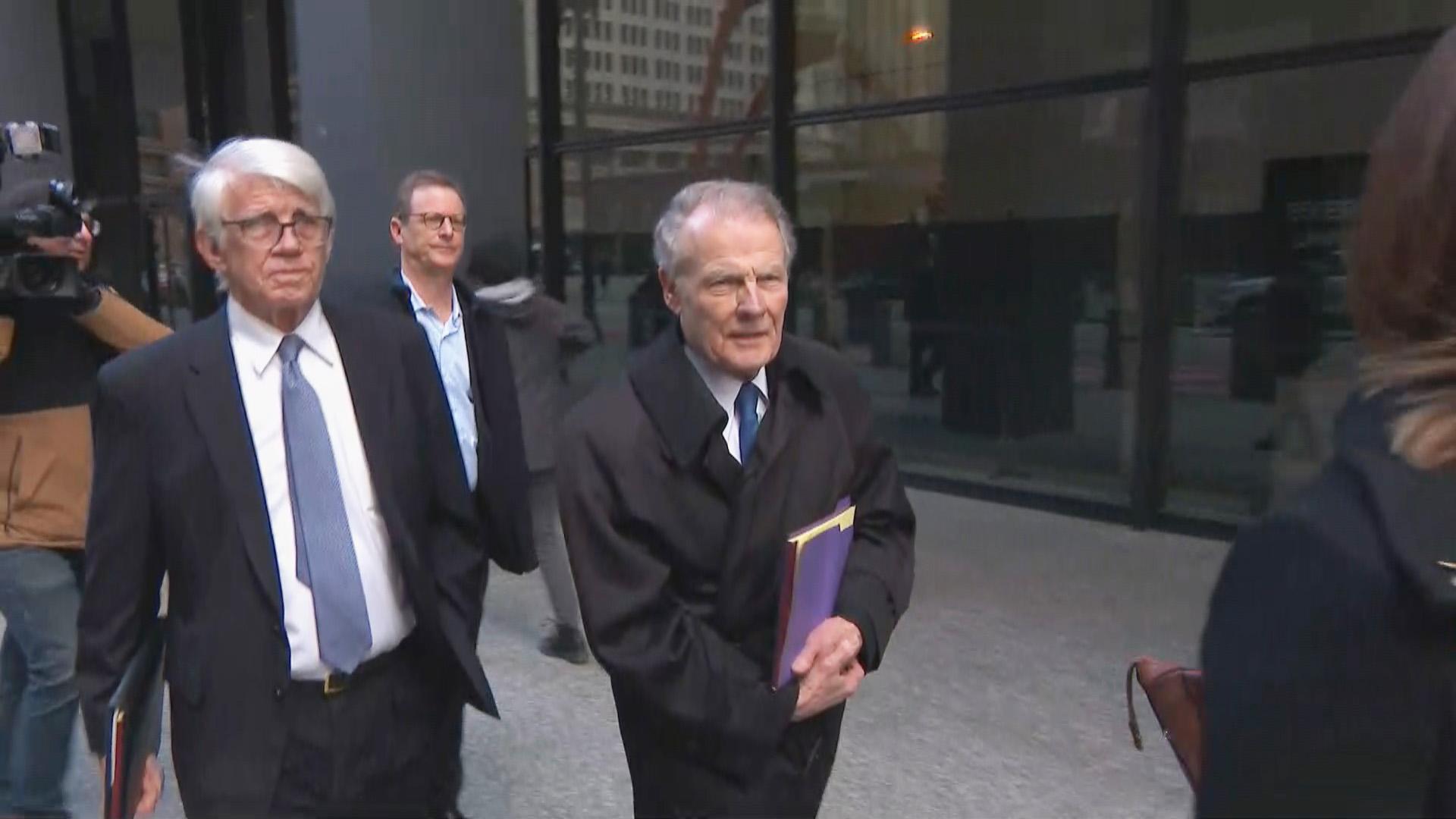 Former Illinois House Michael Madigan leaves the Dirksen Courthouse on Jan. 3, 2024. (WTTW News)
Former Illinois House Michael Madigan leaves the Dirksen Courthouse on Jan. 3, 2024. (WTTW News)
How does a person “corruptly” accept something?
That was a question posed repeatedly by U.S. Supreme Court justices Monday morning as they heard arguments in an Indiana bribery case that could have far-reaching impacts on the upcoming prosecution of ex-Illinois House Speaker Michael Madigan and other already tried high-profile local corruption cases.
The nation’s highest court heard arguments in the appeal of former Portage, Indiana, mayor James Snyder, who was convicted in 2021 of accepting a bribe after federal prosecutors alleged he “corruptly solicited and received” $13,000 in payments from a local towing business after steering a city garbage truck contract to that business.
Snyder has since appealed that conviction, which has now made its way to the Supreme Court, in a case that could determine whether the federal bribery statute criminalizes only bribery or also reaches gratuities — defined as payments in recognition of actions a state or local official has already taken or committed to take, without any quid pro quo agreement to take those actions.
His attorneys have argued that $13,000 in payments weren’t bribes, but rather “thank-you gifts in appreciation for official conduct,” which raises questions of what legally constitutes a bribe.
Madigan — who is facing charges of racketeering conspiracy, using interstate facilities in aid of bribery, wire fraud and attempted extortion — has already seen his upcoming trial delayed from April 1 until October in anticipation of the court’s ruling in the Snyder case.
His defense team argued the Snyder ruling could have a “monumental impact” on this “irrefutably complex” case.
The four former Commonwealth Edison officials convicted last year of conspiring to bribe Madigan have also succeeded in delaying their sentencing dates until after the Snyder ruling, with defense attorneys for the four expressing hope that a favorable decision for them could mean their convictions are tossed out or the entire case is retried.
The government argued that federal statute 666 bars officials from corruptly accepting payments with the intent to be influenced or rewarded in connection with their official duties.
Colleen Roh Sinzdak, assistant to the solicitor general of the United States, told the court Monday that Snyder’s attorneys have sought to weaken that statute by holding that it is not illegal when they corruptly solicit a payment with the intent to be rewarded, unless they agreed to accept that payment before their actions.
Snyder’s attorney disagreed.
“The government’s new definition is implausible and stunningly vague,” Snyder’s attorney Lisa Blatt told the Supreme Court Monday. “No gratuity statute — that’s none whatsoever — used the word ‘corruptly.’ And for good reason. The government can’t tell you what gifts are corrupt.”
The parties ran through numerous hypothetical situations where someone could possibly come under scrutiny for giving or receiving a gift: a “thank you” dinner at a restaurant, giving coffee and doughnuts to police, offering an expensive bottle of wine to a nurse who assisted in a surgery or the owner of a car dealer putting a firefighter on the top of the list for a new vehicle after they saved their daughter from a blaze.
Justice Samuel Alito expressed concerns about the breadth of the government’s interpretation.
“It all seems to rest on the understanding of ‘corruptly,’” he said. “The person who gives a reward simply because that person is grateful may not know what the ethics rules are with respect to the recipient of tis reward.”
But Roh Sinzdak argued that there has to be a “consciousness of wrongdoing” on the part of the person receiving the gift and said the situations like those various hypotheticals are “not even on the radar of the government.”
“What we’re looking for is corrupt acceptance of a payment with the intent to be rewarded in connection with business or transactions worth at least $5,000,” she said.
Notably absent during Monday’s arguments was Justice Clarence Thomas. Chief Justice John Roberts said during the proceedings that Thomas was “not on the bench today,” but would still be able to “participate fully” in the cases the high court heard.
The Supreme Court is expected to issue its ruling by June. Madigan is next due in court for a pretrial conference in September.

